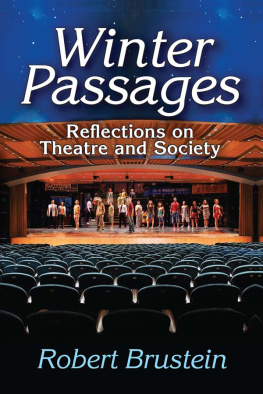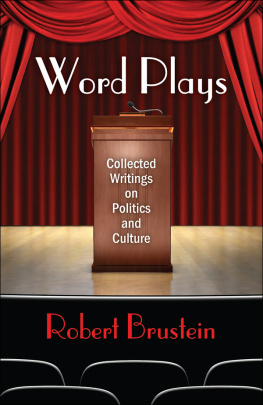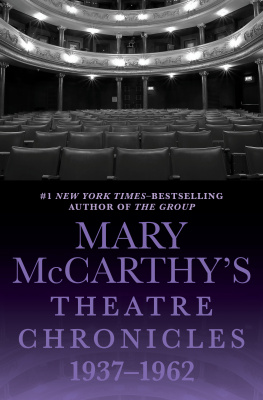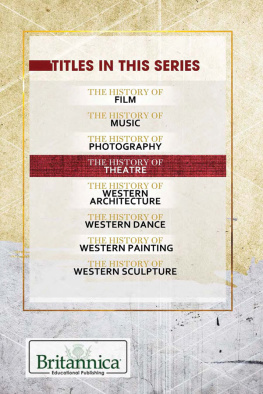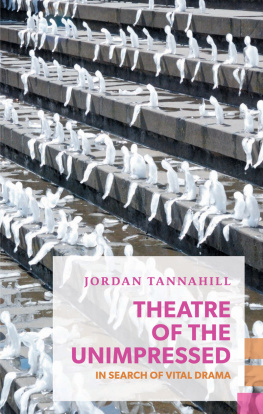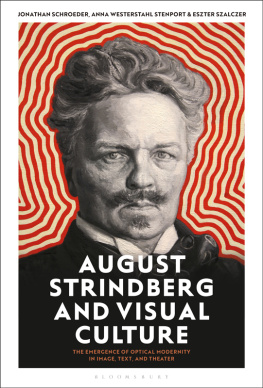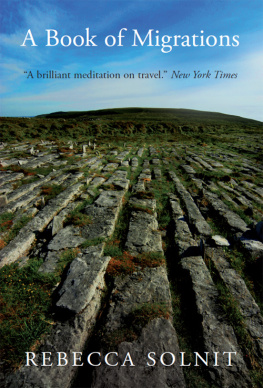First published 2015 by Transaction Publishers
Published 2017 by Routledge
2 Park Square, Milton Park, Abingdon, Oxon OX14 4RN
711 Third Avenue, New York, NY 10017, USA
Routledge is an imprint of the Taylor & Francis Group, an informa business
Copyright 2015 by Taylor & Francis.
All rights reserved. No part of this book may be reprinted or reproduced or utilised in any form or by any electronic, mechanical, or other means, now known or hereafter invented, including photocopying and recording, or in any information storage or retrieval system, without permission in writing from the publishers.
Notice:
Product or corporate names may be trademarks or registered trademarks, and are used only for identification and explanation without intent to infringe.
Library of Congress Catalog Number: 2014005886
Library of Congress Cataloging-in-Publication Data
Brustein, Robert Sanford, 1927
Winter passages : reflections on theatre and society / by
Robert Brustein.
pages cm
ISBN 978-1-4128-5473-3
1. Theater and society. I. Title.
PN2051.B79 2015
792--dc23
2014005886
ISBN 13: 978-1-4128-5473-3 (hbk)
The essays on Thornton Wilder, Weill and Lenya, and China were written for The New York Review. More Masterpieces in the Performing Arts Journal. Puttin on the Spritz was commissioned for Mel Brookss DVD collection. The Like Generation and Return of the Booboisie appeared in The Huff ington Post. The Institution as a Work of Art was a speech to a business group.
All of the pieces on playwrights were written as introductions for Playwrights in an Hour, as commissioned by Smith and Krausethe one exception being my essay on Christopher Durang, which was commissioned by Lincoln Center magazine.
Most of the tributes and elegies were written on the occasion of prizes and memorials at the ART, though the speech on Robert Woodruff was given for the Theatre for a New Audience, and the essay on Philip Roth appeared in the Huffington Post. My thanks to all those periodicals and institutions for permission to reprint.
I have also been deeply fortunate in my editors, for their vigilance in wiping egg off my faceRobert Silvers at The New York Review of Books; Marisa Smith at Smith and Krause; John Guare at Lincoln Center Theatre Magazine; and, of course, my chief editor at home, Doreen Beinart; and Jennifer Nippins of Transaction Publishers.
Introduction:
The past is Prologue
For many educated people in America the postmillennial years have seemed like one long winter of discontent, and we have yet to see much sign of glorious summer. Among those feeling more than their customary quota of gloom I count myself, admittedly a famously disgruntled commentator. (My earliest reviews were collected in 1965 under the title of Seasons of Discontent.)
In those years, I was feeling cranky over the small number of good plays on the American stage. Today, I am more depressed by our political-cultural system itself. The general reasons for this are discussed, sometimes obliquely, in the first section of this book, Cultural Passages. But let me try to sketch out in this introduction some of the reasons for my darker mood.
I think the source of the problem is that we no longer have a strong social-economic system, such as Marxism or socialism, to modify human selfishness or curtail human greed, and organized religion doesnt seem to be doing much to improve human character either (though the early days of Pope Franciss papacy are proving promising). The result is evident today in virtually every social endeavor, including the theatre.
Admittedly, this represents a reversion to an old condition. Although world theatre originated in ritual rather than commerce and was thereafter kept alive through a combination of patronage and ticket sales, in the United States theatre began as a fundamentally profit-oriented entertainment, like the circus, until the late twentieth century, when a number of alternative partially-subsidized institutions grew up to challenge the commercial system in every major city. Represented by the resident theatre movement and the avant-garde, these alternative stages constituted a growing high culture in theatre to match that in American fine arts, music, opera, and ballet, creating a healthy tension between the art theatre and the money theatre, to quote Todd Londons indispensable description of the divergent poles of our theatre culture. The art theatre survived, in its purest form, for the last fifty years of the twentieth century. Now the two antagonists seem to have settled their argument and merged as most of these alternative expressions are being sucked into the yawning gullet of corporate America.
And its not just theatres. The closing down of book shops; the shrinking of audiences for all performance venues, especially opera and ballet; the loss of readership for, and consequent dumbing down of, newspapers and magazines with any serious content; and the timidity of publishing housesindeed, almost every available cultural (and educational) form of activityseem to be signaling the end of an adventurous alternative. Even terms like highbrow and intellectual are becoming recherche or obsolete as the institutions, publications, and structures that attracted such rarefied beings in the past are going out of business or being absorbed into the Internet.
As for the commercialization of serious theatres, it began with the loss of a dependable source of subsidized support, along with the dwindling in size of adventurous audiences. This development motivated some of the nonprofit companies to begin popularizing their work in a manner almost indistinguishable from Broadway, with its traditional pattern of following rather than leading public taste. The practical reason given for this populist move in the resident theatre was to increase income. But a high-minded political motive was being forwarded, too, which was to increase the size of audiences by avoiding the taint of elitismperhaps the most invidious term ever invented to discourage leadership in the arts. It was Chekhov who said, You must bring the people up to Gogol, not Gogol down to the people. Imagine how that admonition would be received today! First the National Endowment for the Arts, feeble enough to start with, sustained serious body blows from a Congress fearful of artistic expression as a whole. Then, foundations, corporations, and individual donors grew a great deal more capricious in their giving habits. And finally, political correctness in the university and elsewhere, with its imposition of multicultural quotas and its substitution of critical theory for textual analysis, is making sure that genuine quality (or elitism) would no longer be the primary criterion for creation. Instead of debates over the aesthetic of an artist or the meaning of a particular work of art, attention is being shifted to complaints about the scarcity of gay plays or the number of women playwrights or whether black actors should perform in white parts or whether white directors should stage black theatre or whether white actors should be allowed to play Latinos and all the other variations on these sexual, gendered, racial, and ethnic determinants.
True, there have almost always been restraints of some kind, usually moral or religious, on freedom of expression in the theatre. Shakespeare and his contemporaries, for example, were forced to cast squeaking boys in female parts because the Church objected to women performing on a public stage. (English Puritans, on the other hand, citing biblical proscriptions on cross-dressing, would shut down spoken theatre entirely in 1642, permittingdoes this sound familiar?only musical production on stage.) Elizabethan and Jacobean playwrights, like many writers functioning under watchdog agencies, usually found some strategy with which to evade government restraints. But imagine if the Greeks or Shakespeares company at the Globe or Molires Comdie-Francaise or Stanislayskis Moscow Art Theatre or Britains Royal Shakespeare Company and National Theatre had been forced to abide by multicultural dictatesor if, like today, artistic people were pouring their valuable creative energies into dancing around cultural obstacles. We would have inherited a very different theatre tradition.

